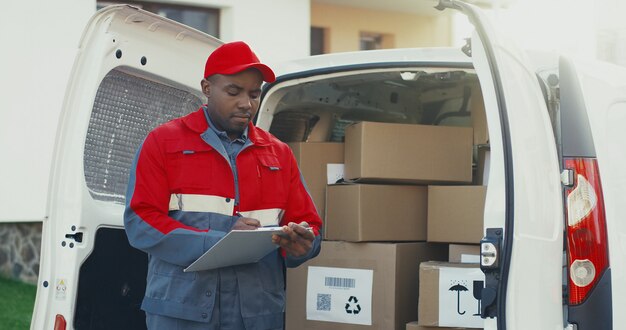Botswana, known for its vast landscapes and well-developed infrastructure, offers numerous opportunities for startups in its transport sector. As the country continues to experience economic growth and urbanization, the demand for efficient and innovative transport solutions is on the rise. Entrepreneurs who tap into these opportunities can not only meet the growing demand for transportation services but also contribute to the development of the country’s economy.
In this article, we’ll explore the various opportunities in Botswana’s transport sector for startups, providing insights into how entrepreneurs can leverage these opportunities for success.
The Transport Sector in Botswana: An Overview
Botswana’s transport sector includes a range of services, including road, rail, air, and maritime transport. With a land area of over 581,730 square kilometers, efficient transportation systems are essential for the movement of goods and people. In recent years, the government has placed a strong emphasis on improving infrastructure, enhancing logistics, and embracing technology to modernize the transport industry.
Despite the progress, several gaps remain that create opportunities for innovation and investment. This article will focus on key opportunities for startups in the transport sector, including logistics and delivery services, ride-hailing, public transport, freight and cargo handling, and infrastructure development.
1. Logistics and Delivery Services
With Botswana’s growing e-commerce industry and increasing demand for goods and services, the logistics and delivery services sector is booming. The rapid growth of online shopping has created a need for reliable delivery services, especially in urban areas like Gaborone, Francistown, and Maun.
Opportunities:
- E-commerce Logistics: E-commerce businesses in Botswana rely on efficient delivery systems to serve their customers. Startups can capitalize on this by offering last-mile delivery solutions for local and international e-commerce platforms.
- Courier Services: With the increasing volume of parcels being sent both locally and internationally, starting a courier service that offers fast and reliable deliveries could be a profitable venture.
- Cold Chain Logistics: Botswana has a growing demand for cold storage and refrigerated transport, particularly for perishable goods such as food, pharmaceuticals, and chemicals. Startups can enter this niche by providing temperature-controlled transport services.
How to Get Started:
- Technology Integration: Developing an easy-to-use mobile app for tracking deliveries and scheduling services will help attract tech-savvy consumers.
- Partnerships: Partnering with established e-commerce platforms or local businesses can help establish credibility and boost your startup’s reach.
2. Ride-Hailing and Transport Services
As urbanization accelerates in Botswana, especially in cities like Gaborone, there is an increasing demand for convenient and affordable public transport options. Ride-hailing services, such as Uber and Bolt, are growing in popularity worldwide, and Botswana is no exception.
Opportunities:
- Ride-Hailing Apps: Starting a ride-hailing service in major cities presents an excellent opportunity. With a growing middle class and increasing smartphone penetration, many people are seeking more flexible and cost-effective transport options.
- Car Rentals: A car rental service can cater to both residents and tourists looking for short-term vehicle rentals. Providing a wide variety of vehicles, including eco-friendly options, can give your business a competitive edge.
- Employee Transport Solutions: Companies often need reliable transport solutions for employees, particularly in remote areas. Offering shuttle services for corporate clients can be a lucrative market.
How to Get Started:
- Mobile App Development: Building a user-friendly mobile app for customers to book rides, track vehicles, and make payments is essential. Ensure that your app is optimized for Botswana’s internet infrastructure.
- Fleet Management: Invest in a fleet of vehicles, ensuring that they are well-maintained and provide a safe, comfortable ride for passengers.
- Safety and Compliance: Prioritize passenger safety by following local transport regulations and ensuring that drivers are well-trained and insured.
3. Public Transport Services
Botswana’s public transport system, especially in rural areas, remains underdeveloped. This presents an opportunity for entrepreneurs to provide affordable and efficient transport services in underserved regions.
Opportunities:
- Minibus and Taxi Services: Starting a minibus or taxi service in urban and rural areas can address the gap in public transport, particularly for commuters who rely on shared transport.
- Intercity Buses: Providing long-distance bus services that connect different cities and towns can serve the needs of both locals and tourists. This can be particularly profitable as Botswana’s road infrastructure improves.
- Eco-Friendly Transport: There is a growing demand for eco-friendly and sustainable transport solutions. Investing in electric buses or other green transport alternatives could position your business as an environmentally responsible provider.
How to Get Started:
- Fleet and Infrastructure: Invest in a reliable fleet of minibuses or buses that meet the needs of commuters. Consider the convenience of passengers, such as having air-conditioned vehicles, especially in the summer months.
- Pricing Strategy: Offer competitive pricing to attract a wide range of customers, while ensuring that the pricing model is sustainable for your business.
- Scheduling and Routes: Create efficient routes and a reliable schedule that ensures punctuality and meets the needs of your target customers.
4. Freight and Cargo Handling
Botswana’s strategic location as a gateway between Southern Africa’s landlocked countries (such as Zimbabwe, Zambia, and Namibia) makes it an ideal hub for freight and cargo transport. The country is well-connected to major international markets, particularly through its proximity to South Africa and the port of Durban.
Opportunities:
- Cross-Border Freight Services: Providing cross-border transport services between Botswana and neighboring countries can tap into regional trade. Startups can offer road transport services for goods ranging from agricultural products to manufactured goods.
- Warehousing and Distribution: Offering storage solutions and handling services for freight can complement your logistics services. Startups can build partnerships with manufacturers and exporters who need reliable warehousing and distribution services.
How to Get Started:
- Invest in Freight Vehicles: Invest in large trucks, trailers, and specialized vehicles for the transport of different types of cargo.
- Warehouse Facilities: Secure warehouse spaces that can accommodate different types of cargo and provide value-added services, such as inventory management.
- Compliance: Ensure that your business adheres to international trade regulations and standards for cargo handling and freight transport.
5. Infrastructure Development and Maintenance
As Botswana continues to invest in its infrastructure, there is a growing need for businesses that provide solutions in transport infrastructure development and maintenance. This includes construction, road maintenance, traffic management systems, and airport development.
Opportunities:
- Road Construction and Maintenance: The government has plans for the expansion of roads and highways to improve connectivity across the country. Startups that focus on road construction and maintenance services can benefit from these projects.
- Traffic Management Solutions: Developing smart traffic management systems, including digital signage, monitoring, and AI-powered solutions, can optimize traffic flow and safety in urban areas.
- Public Transport Infrastructure: There is also potential in providing infrastructure for public transport services, such as bus terminals, ticketing systems, and vehicle maintenance hubs.
How to Get Started:
- Partner with the Government: Many infrastructure projects are government-driven, so building relationships with local and national authorities can open doors for lucrative contracts.
- Specialized Skills: Invest in the necessary skills and certifications for civil engineering, construction, and urban planning to ensure that your startup is equipped to handle infrastructure projects.
6. Transport Technology Solutions
Technology is transforming the transport sector globally, and Botswana is no exception. There is an increasing demand for technology-driven solutions to enhance the efficiency of transport operations.
Opportunities:
- Fleet Management Software: Startups can develop or resell fleet management software that helps businesses optimize their vehicle fleet operations. Features such as route optimization, maintenance tracking, and real-time GPS monitoring can improve efficiency.
- Ride-Sharing Platforms: Beyond traditional ride-hailing, there are opportunities to develop niche platforms that focus on specific needs, such as shared commuting for employees or transport for specialized goods.
- Electric Vehicle (EV) Charging Infrastructure: As electric vehicles gain traction, there is a growing need for EV charging stations. Investing in this infrastructure can be a forward-thinking business opportunity.
How to Get Started:
- Software Development: If you have a background in tech, developing customized software solutions or mobile apps for the transport sector can be a lucrative niche.
- Partner with Vehicle Manufacturers: Collaborating with electric vehicle manufacturers or distributors can help you establish a network of charging stations in strategic locations.
The transport sector in Botswana presents diverse opportunities for entrepreneurs looking to start a business in a growing and dynamic industry. From logistics and ride-hailing to freight handling and infrastructure development, there is a wide range of niches to explore. By leveraging technology, staying informed about market trends, and partnering with key stakeholders, startups can tap into these opportunities and build successful businesses that contribute to Botswana’s economic development.
Entrepreneurs who invest in understanding the local transport needs, customer preferences, and government regulations will have the competitive edge in this rapidly evolving industry.






